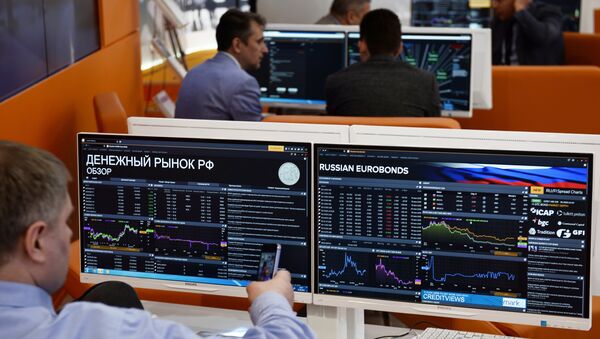The budget deficit/GDP ratio in Russia now stands at 3.6 percent, while in 2010 and 2012 it was as high as ten percent in the US and six percent in the Eurozone, just like in the UK now, meaning that even during a recession, Russia’s economy was faring better than the West’s, the article said.
Furthermore, Russia's state-debt/GDP ratio for 2015 will not exceed 18 percent, compared to 92 percent in the Eurozone and over 130 percent in Italy.
Commenting on Russia’s jobless rate of 5.8 percent, the author said that in Europe this would have been seen as one of the healthiest around.
Russia’s banks were hit the hardest by the western sanctions, as they were no longer able to borrow money on the financial markets of the EU and the US and sell their stock abroad.
On the other hand, falling oil prices and the devaluation of the ruble helped keep the budget deficit in check.
Additionally, in contrast with the 1998 crisis, Russia can depend on its considerable gold and currency reserves, the magazine wrote.
The specter of a default is a magic formula Europeans traditionally use against their political opponents. It’s a propaganda tool that was previously used to create an atmosphere of terror needed to force Italian Prime Minister Silvio Berlusconi to step down and be replaced by Brussel’s own candidate.
As to President Vladimir Putin, he does not seem to care much about this whole “default scare,” while the Europeans, who have just extended the anti-Russian sanctions, may eventually have to pay dearly for doing Washington’s bidding, the author wrote in conclusion.



